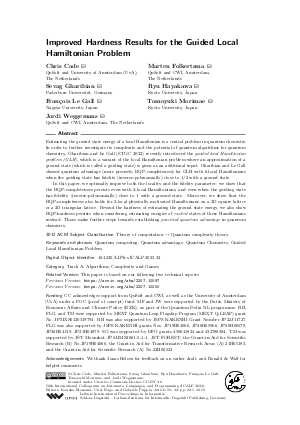LIPIcs.ICALP.2023.32.pdf
- Filesize: 0.74 MB
- 19 pages

 Creative Commons Attribution 4.0 International license
Creative Commons Attribution 4.0 International license




















Feedback for Dagstuhl Publishing